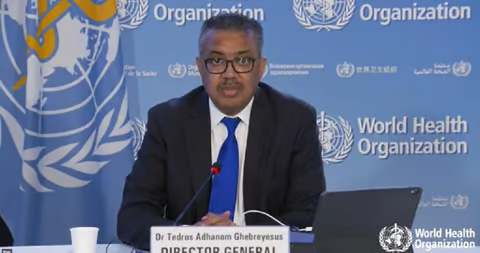Sydney— The World Health Organization (WHO) declared mpox, formerly known as monkeypox, a global public health emergency as of August 14, 2024, due to a surge in cases primarily in Africa. This declaration represents the highest level of alarm regarding the increasing severity of the situation.
The new strain of mpox has raised significant concerns, particularly as infections have surged in the Democratic Republic of Congo (DRC) and spread to neighboring countries. WHO Director-General Tedros Adhanom Ghebreyesus announced the emergency designation following a meeting with the emergency committee, highlighting the urgent need for an international response.

“The detection and rapid spread of a new clade of mpox in eastern DRC and its emergence in countries that previously reported no cases is particularly alarming,” stated Tedros during a press conference. He emphasized that without immediate action, the potential for further spread both within Africa and beyond poses a serious threat.
The WHO’s announcement closely follows the African Union’s health agency, which also declared a public health emergency due to the escalating outbreak. So far this year, DRC has reported over 14,000 cases and 524 deaths, surpassing the total number of cases from the previous year. The spread of clade 1b, which appears to predominantly transmit through sexual networks, is of particular concern, as indicated by the recent cases in Burundi, Kenya, Rwanda, and Uganda.
Experts warn that the current situation may only represent the “tip of the iceberg,” as limited surveillance hinders a complete understanding of the outbreak’s extent. Maria Van Kerkhove, WHO’s director for epidemic and pandemic preparedness and prevention, asserted that a concerted effort could halt the transmission of mpox.
The WHO recommends two vaccines for mpox, aiming to curb the infection’s spread. Mpox was first identified in humans in 1970 in what is now the DRC and is transmitted through close physical contact with infected animals or individuals. It causes symptoms such as fever, muscle aches, and distinctive boil-like skin lesions.
The global community has faced mpox outbreaks before, particularly the surge in May 2022 that led to the declaration of a public health emergency from July 2022 to May 2023, resulting in approximately 140 deaths out of around 90,000 reported cases. This marks only the eighth declaration of a Public Health Emergency under the International Health Regulations since 2009, with previous declarations including H1N1 swine flu, polio, Ebola, Zika virus, COVID-19, and mpox.

